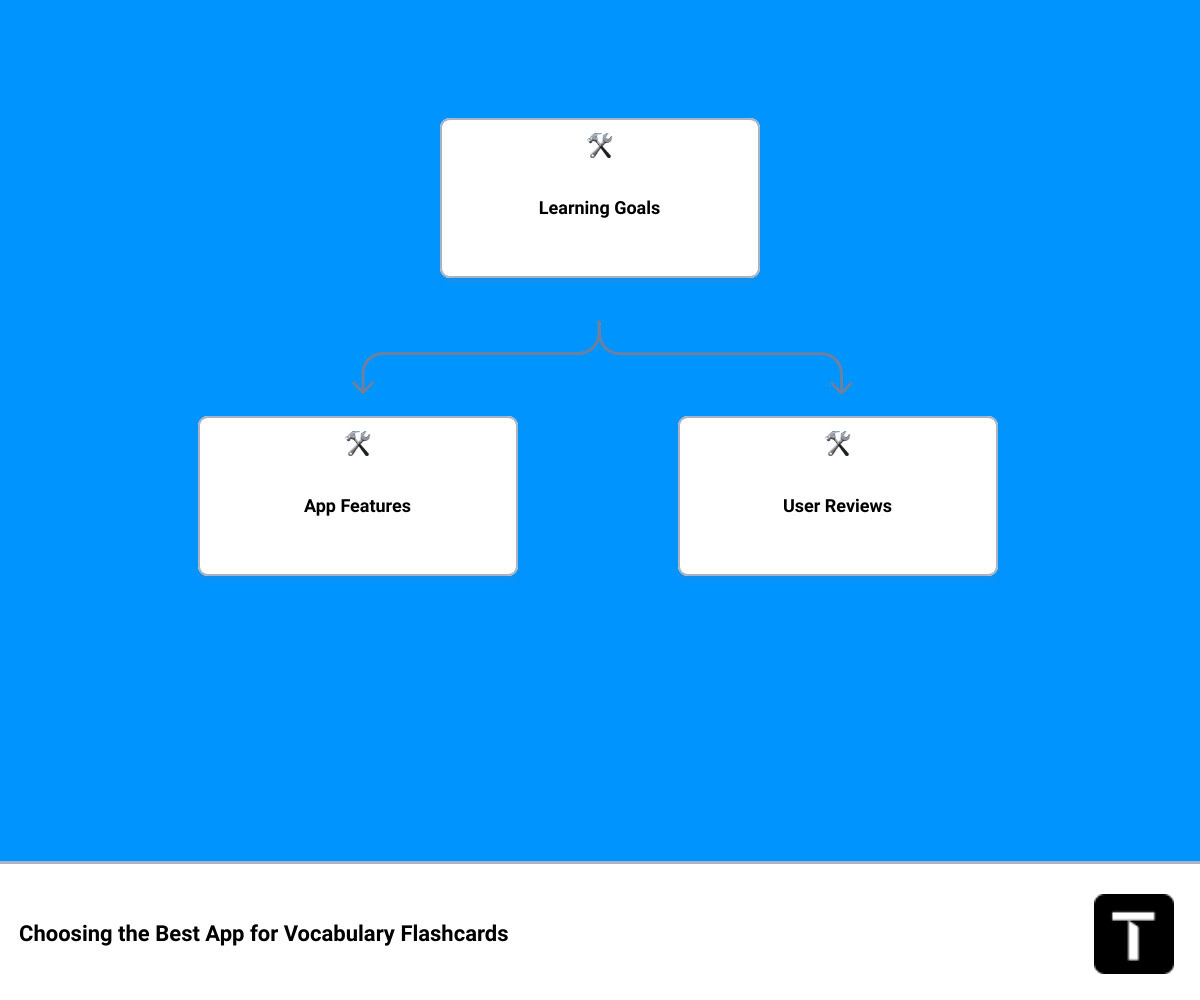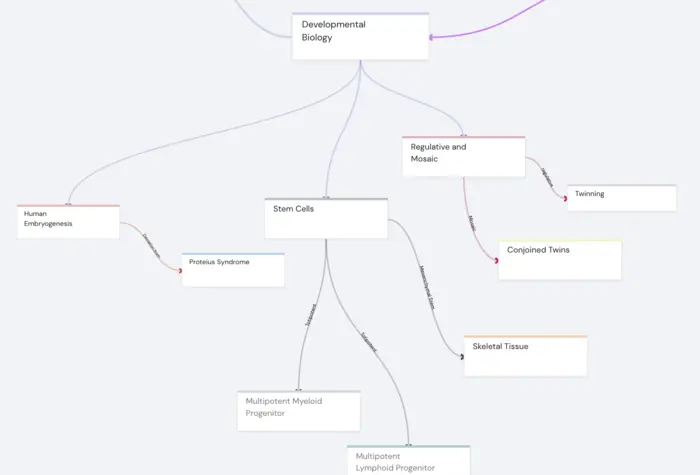Introduction to Vocabulary Flashcards Apps
Ready to revolutionize your vocabulary learning process? Welcome to the world of digital flashcards apps, where words are your playground and science is your learning guide. As a dedicated learner, you understand the crucial role vocabulary plays in mastering any language, including Mandarin. Whether it's memorizing characters or understanding the nuances of pronunciation, vocabulary flashcards apps are your secret weapon.
Vocabulary flashcards apps are an innovative blend of technology and cognitive science designed to optimize your learning efficiency. They leverage the power of spaced repetition, a proven learning technique that amplifies your memory retention and recall. But wait, there's more. These apps don't just offer flashcards; they come packed with immersive features like audio pronunciation, engaging quizzes, and user-generated content to make your learning journey fun and effective.
But with a plethora of vocabulary flashcards apps available, how do you choose the one that perfectly aligns with your learning goals? Well, worry not because we've got you covered. In this comprehensive guide, we'll delve into the world of vocabulary flashcards apps, analyze their importance, and review some of the best apps available in the market, including Traverse, a game-changer in the realm of vocabulary learning.
So, let's embark on this exciting journey and discover the best app for vocabulary flashcards that can transform your learning experience and help you conquer Mandarin or any other language you set your sights on.
The Importance of Vocabulary Flashcards Apps
In the world of language learning, we often underestimate the importance of vocabulary flashcards apps. But the truth is, these apps can be a game-changer, significantly enhancing your learning efficiency and memory retention. Let's dive deeper into the role of flashcards in vocabulary learning and the benefits of using flashcard apps.
The Role of Flashcards in Learning Vocabulary
Traditional flashcards have been a staple in learning for decades, but the advent of flashcard apps has taken this learning tool to a whole new level. Flashcards are used to test and improve memory by rehearsing information retrieval. They are particularly effective when learning new terms or concepts, such as the Disciplinary Core Ideas of state standards, or mastering complex subjects like Mandarin Chinese.
A key feature of flashcards is that they leverage a psychological testing effect known as active recall. This means you're not merely reviewing information but actively retrieving it from memory. This process strengthens neural connections, making it easier to recall information in the future.
The Benefits of Using Flashcard Apps for Vocabulary Learning
Switching from paper to digital flashcards brings several benefits. First, flashcard apps offer portability and convenience. You can review your vocabulary anytime, anywhere – during your commute, on your lunch break, or while waiting for a friend.
Second, many flashcard apps incorporate advanced learning algorithms. For example, the Audio Flashcards App includes a space-repetition algorithm that presents information just as you're about to forget it. This intelligent feature allows you to combat the forgetting curve and ensures superior long-term learning and memory retention.
Flashcard apps also offer a level of customization and personalization that paper flashcards simply can't match. You can create custom audio flashcards, review them at your own pace, and even record your own voice. This personalized approach facilitates a deeper connection with the learning material, which can significantly boost memory retention and recall.
Lastly, flashcard apps can cater to different learning styles. For auditory learners, apps like the Audio Flashcards App can be particularly beneficial, as they tap into the power of auditory memory and enhance learning through listening.
In summary, vocabulary flashcard apps can make your learning journey more efficient, personalized, and enjoyable. They are an invaluable tool for lifelong learners seeking to master new languages or complex subjects. As we explore further, we'll delve into how you can choose the best app for vocabulary flashcards based on your unique learning needs and goals.

How to Choose the Best App for Vocabulary Flashcards
When it comes to learning vocabulary, not all flashcard apps are created equal. The best app for you depends on your unique learning needs and goals. Here's how to navigate the sea of options and choose the app that will supercharge your vocabulary learning journey.
Understanding Your Learning Needs and Goals
The first step in choosing the right vocabulary flashcard app is understanding your personal learning needs and goals. Are you a beginner just starting to learn a new language, like Mandarin? Or are you a seasoned language learner seeking to expand your vocabulary for a specific purpose, such as preparing for the GRE? Your current proficiency level and ultimate language goals will shape the features and functionalities you need in a flashcard app.
For instance, beginners might benefit from an app like Memrise that offers user-generated flashcards with fun pictures and memorization tricks. On the other hand, advanced learners might prefer an app like Magoosh, specifically designed for GRE vocabulary learning.
Moreover, consider your learning preferences. Do you learn best through visual stimuli, auditory cues, or a combination of both? For auditory learners, the Audio Flashcards App might be a game-changer, allowing you to learn through listening and engage your auditory memory.
Evaluating the Features of Vocabulary Flashcard Apps
Once you've identified your learning needs and goals, it's time to evaluate the features of different flashcard apps.
Spaced Repetition System (SRS): At the heart of effective vocabulary learning is the Spaced Repetition System. SRS exposes you to new information just as you're about to forget it, thereby strengthening your memory. Apps like Anki optimize this by adjusting the frequency of flashcards based on your performance.
Customizability: Personalized learning is key to efficiency. Look for apps that allow you to customize your flashcards to suit your learning style. This could mean adjusting the order of cards, changing the front and back sides, or altering the audio speed.
Long-term retention: True learning is about more than just cramming for a test. It's about internalizing the language for long-term memory retention. Apps that focus on this, like Anki, can be particularly beneficial.
Flexibility: Depending on your learning goals, you might need to focus on different skills - listening comprehension, reading, or speaking. Choose an app that can be adjusted to meet these needs.
Remember, the best app for vocabulary flashcards is the one that works for you. By understanding your learning needs and evaluating app features, you can find the perfect tool to boost your vocabulary learning efficiency and make mastering a new language a breeze.
Review of Top Vocabulary Flashcard Apps
Learning Mandarin, or any language for that matter, requires a powerful tool to boost your vocabulary acquisition. Here's a rundown of the top vocabulary flashcard apps that can help you learn more effectively.
Anki: A Versatile Memorization Tool
Anki is a long-standing favorite among language learners. It's an open-source platform that allows users to create personalized flashcards and leverages a spaced repetition system to optimize learning. However, its interface might feel a bit outdated and requires some getting used to.
Quizlet: A Flashcards App with Customizable Spaced Repetition Algorithm
Quizlet is an intuitive flashcard app that includes millions of user-generated flashcard sets. It allows you to create your own flashcards, offers word pronunciations from native speakers, and tracks your progress to keep you motivated. However, it lacks a built-in spaced repetition feature but compensates with customizable quizzes.
Memrise: A Beginner-friendly App with User-generated Flashcards
While our sources do not mention Memrise, it is a well-known app that offers user-generated flashcards and is geared towards casual and beginner learners. It includes gamified learning and has a friendly interface.
FluentU: An Immersive Language Learning Program
FluentU is not only a vocabulary flashcard app but a comprehensive language learning program. It uses real-world videos like music videos, movie trailers, news, and inspiring talks and turns them into personalized language learning lessons.
Magoosh: A GRE Vocabulary Flashcards App
Magoosh is a series of flashcard apps designed for different English vocabulary needs. It's particularly useful when preparing for tests like TOEFL and IELTS. The flashcards are expert-designed and focused, but it might not be the best choice if you want to create your own flashcard decks.
Lingvist: A Beginner-focused App for Mastering High-frequency Vocabulary
Lingvist, although not specifically mentioned in our sources, is an app that focuses on high-frequency vocabulary, making it a great tool for beginners trying to build a solid vocabulary foundation.
Drops: A Vocabulary Learning App with Game-like Features
Drops is a fun, game-like app that can help make vocabulary learning less of a chore. It focuses on word association with visuals and quick, 5-minute lessons.
Brainscape: A Comprehensive Vocabulary Learning App
Brainscape uses a Confidence-Based Repetition system, focusing on areas where you need the most practice. It offers a vast library of English flashcards created by experts and allows you to create your own flashcards.
Free WordPower: A Vocabulary App with Audio Pronunciations
Free WordPower is an app that provides word of the day and audio pronunciations, available in both American and British English versions.
Flashcards with Cram: A Flashcard App with a Large Database of Flashcards
Cram is another flashcard app with a large database of flashcards. It offers online and offline access and has a variety of study modes, including memorize, test, and cram.
Flashcard Deluxe: A Flashcard App with Advanced Study Modes
Flashcard Deluxe, although not mentioned in the sources, is known for its advanced study modes, including Leitner system support, a popular method for efficient memorization.
Each of these apps has its strengths and weaknesses, and the right one for you will depend on your needs and learning style. In the next section, we'll take a closer look at Traverse, a learning app that combines mind mapping and spaced repetition flashcards to revolutionize vocabulary learning.
Traverse: Revolutionizing Vocabulary Learning
Learning vocabulary is no longer a tedious task with the introduction of Traverse, a learning app that reimagines language learning with its unique blend of mind mapping and spaced repetition flashcards.
Overview of Traverse: A Learning App with Mind Mapping and Spaced Repetition Flashcards
Traverse is not just about rote memorization; it's about understanding the interconnectedness of words, their meanings, and their usage. The app's unique approach of using mind mapping and spaced repetition flashcards helps learners to better visualize and remember information. With Traverse, you're not just learning words. You're learning how they fit into the grand scheme of your chosen language.
The Unique Features of Traverse for Vocabulary Learning
Traverse takes the best features of other vocabulary learning apps and combines them in a streamlined, intuitive interface. The app offers mind mapping, a powerful technique that aids in learning complex topics by creating a visual map of related topics and subtopics. This helps you to understand the connections and flow of information, enhancing your recall and comprehension.
In addition to mind mapping, Traverse also uses spaced repetition flashcards. This method is scientifically proven to enhance long-term recall of information. By increasing the time intervals between each review of a word or phrase, you can effortlessly remember it even after long breaks.
Moreover, the app allows you to quickly create flashcards from any note, making it a versatile tool for language learning.
How Traverse Partners with Mandarin Blueprint for Mandarin Learning
Traverse has partnered with Mandarin Blueprint to provide an effective learning solution for Mandarin learners. The partnership has resulted in higher conversion rates and more engaged learners who consistently praise the quality of the course. This is a testament to the effectiveness of Traverse's unique learning approach in helping learners master complex languages like Mandarin.
Importing Anki Decks into Traverse for Continued Learning
One of the greatest strengths of Traverse is its compatibility with Anki, another popular learning app. As the first 100% Anki-compatible learning app, Traverse allows you to import your Anki decks and continue learning seamlessly. If you've been using Anki for your vocabulary learning, this feature lets you switch to Traverse without losing any of your progress.
In a nutshell, Traverse is not just another flashcard app. It's a comprehensive learning tool that combines the best parts of traditional vocabulary learning apps with innovative features like mind mapping and the capability to import Anki decks. Whether you're a beginner or an advanced learner, Traverse can revolutionize the way you learn vocabulary.

How to Effectively Use Flashcard Apps for Vocabulary Learning
Harnessing the power of technology in the form of flashcard apps can significantly enhance your vocabulary learning process. However, merely having a high-tech tool is not enough; it's crucial to know how to use it effectively to reap maximum benefits.
Tips for Creating Effective Vocabulary Flashcards
Creating effective vocabulary flashcards relies on more than just writing a word on one side and its meaning on the other. Here's how you can optimize your flashcards for better learning:
Contextualize your learning: Instead of a simple definition, include a sentence using the new word to understand its context. This technique will help you remember the word more effectively and use it correctly when you're speaking or writing.
Use multimedia: Many flashcard apps, including Anki and Quizlet, allow you to incorporate images and audio into your flashcards. Visual and auditory cues can enhance your memory, making word recall easier.
Keep it in English: Avoid translating the word into your native language. Instead, write all the definitions and explanations in English, which helps you think in English and ultimately improves your fluency.
Use spaced repetition: Apps like Anki use a spaced repetition system (SRS), which is proven to improve long-term memory retention. The SRS algorithm exposes you to information you're about to forget, thereby strengthening your memory.
Strategies for Using Flashcard Apps for Optimal Learning
Now that you have your flashcards ready, how can you use them effectively? Here are some proven strategies:
Regular Review: Consistency is key when it comes to vocabulary learning. Regularly review your flashcards to reinforce your memory.
Active Recall: Instead of passively reading the flashcard, try to recall the information actively. Active recall has been shown to be more effective than passive review.
Customize Your Sessions: Most apps allow you to adjust the number of new cards you see each day and the intervals at which cards are shown. Customize these settings according to your learning pace.
Use Filters and Tags: Keep your flashcards well-organized by using tags and filters. This feature allows you to focus on areas that need more attention.
Import and Export Decks: Sharing is caring! Import decks from other learners or share your own with the learning community. This exchange not only saves time but also exposes you to different learning styles.
By following these tips and strategies, you can optimize your vocabulary learning process with flashcard apps. Remember, the goal is not just to expand your vocabulary but to internalize these words, making them a natural part of your language use.
Conclusion: Choosing the Best App for Vocabulary Flashcards
Taking the first step to transform your language learning journey can feel like navigating through a labyrinth. But with the right app for vocabulary flashcards, you are on track to revolutionize your learning process. The choice of the app largely depends on your personal learning style, goals, and the features you value in a flashcard app.
Among the multitude of options, Anki shines for its versatility, while Quizlet is lauded for its simplicity and user-friendly design. Memrise and FluentU offer a more immersive approach to language learning, with the latter using real-world videos to provide context to vocabulary learning. If you're preparing for specific exams such as GRE, Magoosh could be your go-to app. Brainscape and Flashcards with Cram are perfect for learners who appreciate a comprehensive learning framework.
However, if you're looking for an all-in-one app that integrates note-taking, flashcards, and mind mapping, Traverse stands out. It not only offers user-friendly spaced repetition flashcards but also allows you to express your understanding visually through mind maps. With its partnership with Mandarin Blueprint, it's a particularly promising choice for Mandarin learners.
Furthermore, it's essential to remember that simply using flashcards is not enough. Effective vocabulary learning requires active engagement. Create your own flashcards when possible, regularly review them, and, most importantly, use the newly learned words in practical contexts.
Choosing the best app for vocabulary flashcards is just the beginning. The real power lies in how you utilize these apps to make vocabulary learning a seamless part of your daily routine. So, pick the app that resonates with you the most and embark on your journey to master a new language with confidence and ease.

